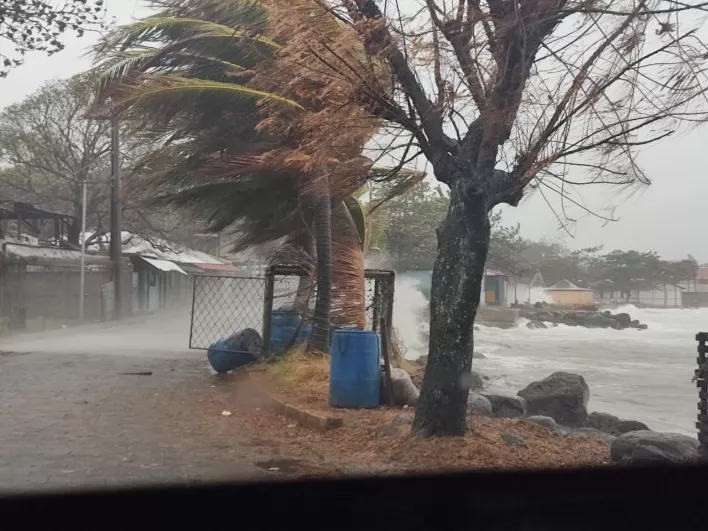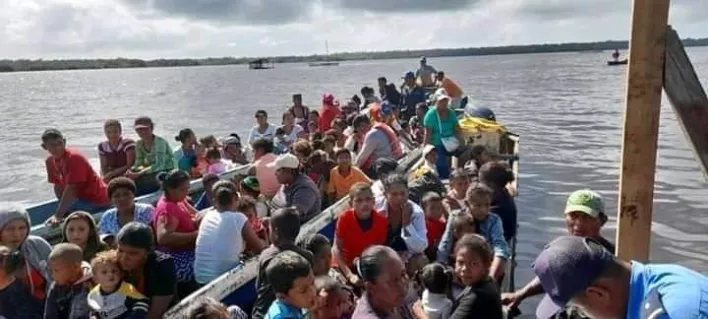
According to Honduran officials, more than 200,000 families have been affected. More than 100 people remain missing after a landslide in Guatemala caused by the hurricane. Reuters reports that at least two people have died in Costa Rica, the AP reports that at least two more people have died in Nicaragua. The death toll and the full scope of the disaster remains uncertain at this time given the difficulty reaching isolated communities.
According to the Intercept, the indigenous communities in Honduras, Nicaragua, and Guatemala were among the hardest hit, including the Miskito and Mayanga communities in Nicaragua, the Quejá communities in Guatemala and the Afro-Indigenous Garifuna community in Honduras. In July, four Garifuna members were abducted by armed men wearing police uniforms for defending their land. The article also reports that, these communities contribute the least to climate change, yet they bear the “brunt of its impacts.”

PBI-Canada notes, “PBI-Guatemala accompanied Verapaz Union of Campesino Organizations (UVOC), an Indigenous and peasant organization dedicated to the defense and promotion of access to land for peasants, has tweeted that Eta has left 50 Mayan Q’eqchi’ families homeless on the ancestral territory they seek to recover after a series of dispossessions, including by the Military Zone 21 army base built on their lands in 1968.”
We regret the enormous losses, the destruction of houses and crops, the isolation caused by the destruction of roads, bridges and power lines. Not only do we regret all these material losses, but more importantly the loss of precious human lives.
PBI expresses solidarity with the communities affected by the hurricane and the loss of human life. We are deeply concerned that these impacts, aggravated by the pandemic, and caused among others by ecological destruction, will not receive the necessary attention and response and will be overshadowed by the US elections. and by the global health crisis caused by the pandemic. Many rural communities, including many communities accompanied by PBI, have been devastated by rains and landslides and their crops totally destroyed. The survivors are now left empty-handed, trying to survive in schools or neighboring communities with the aggravation of the health crisis.
How can you help?
- Rights Action, a nonprofit organization that has been working in Guatemala for more than 25 years, has developed an Emergency Fund for Hurrianes Eta & Iota. “Rights Action channels your funds directly to dozens of community organizations implementing their own human rights, territorial, environmental, democracy and justice defense struggles and emergency relief projects.” You can learn more and make a donation by clicking here. Donations are also being received directly by the Campesino Committee of the Highlands (CCDA). They can be sent via Cafe Justicia by e-transfer to cjgreenbeans@gmail.com, or by check to 3859 Lanark St Vancouver BC V5N 3R6.
- If you would like to help the communities in Nicaragua that have been affected by the hurricanes, you can learn more and donate to the following nonprofit organizations: Trocaire, World Vision and to help from Costa Rica please click here.
- You can can donate to support rural communities in Honduras, including the National Union of Rural Workers (CNTC) through this gofundme campaign Honduras is Drowning.
